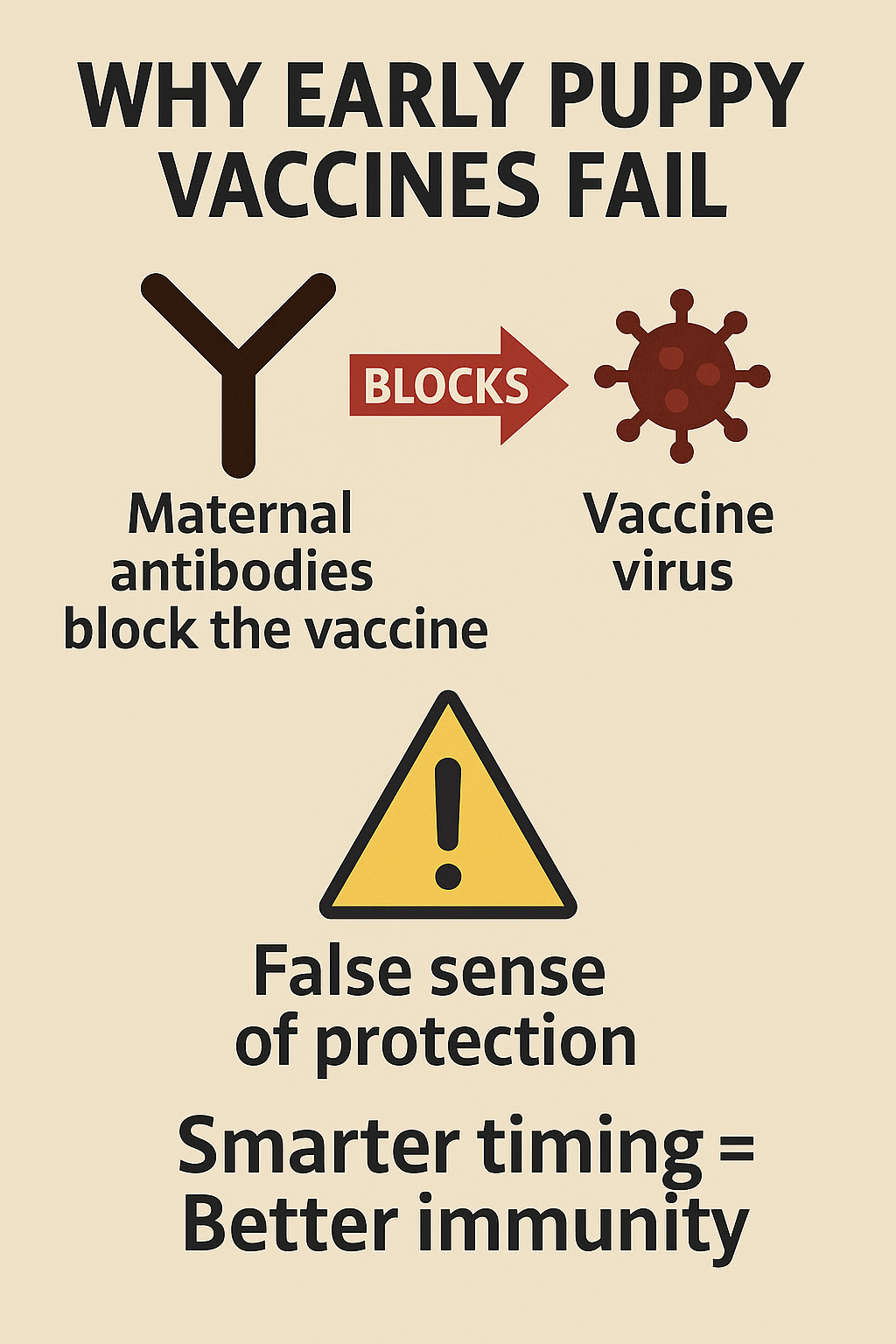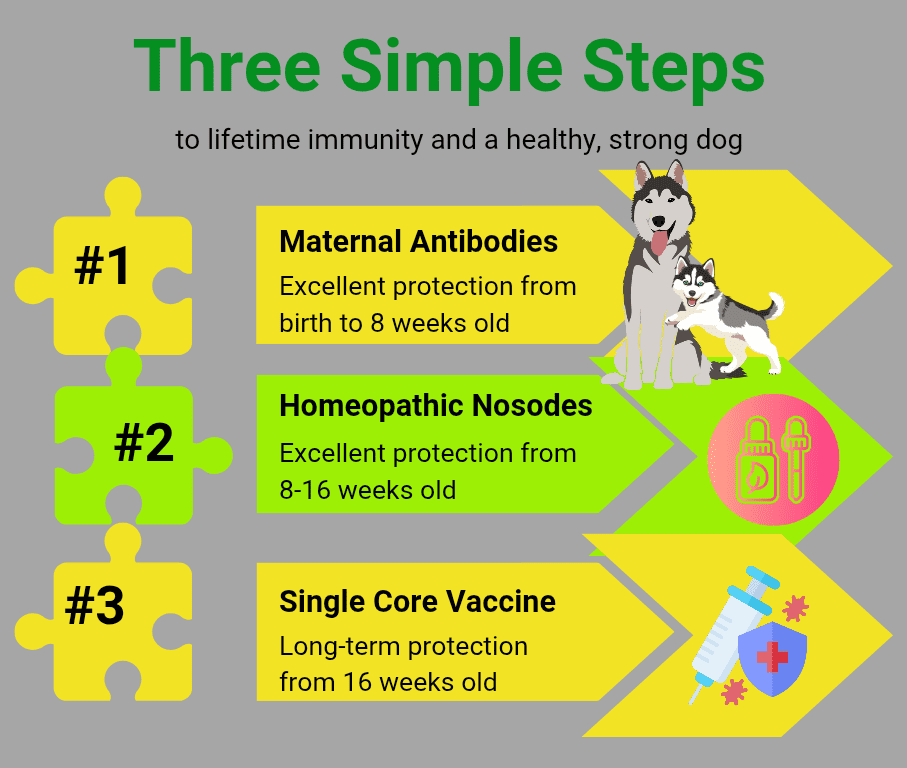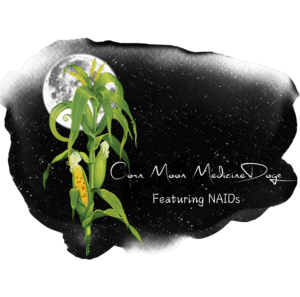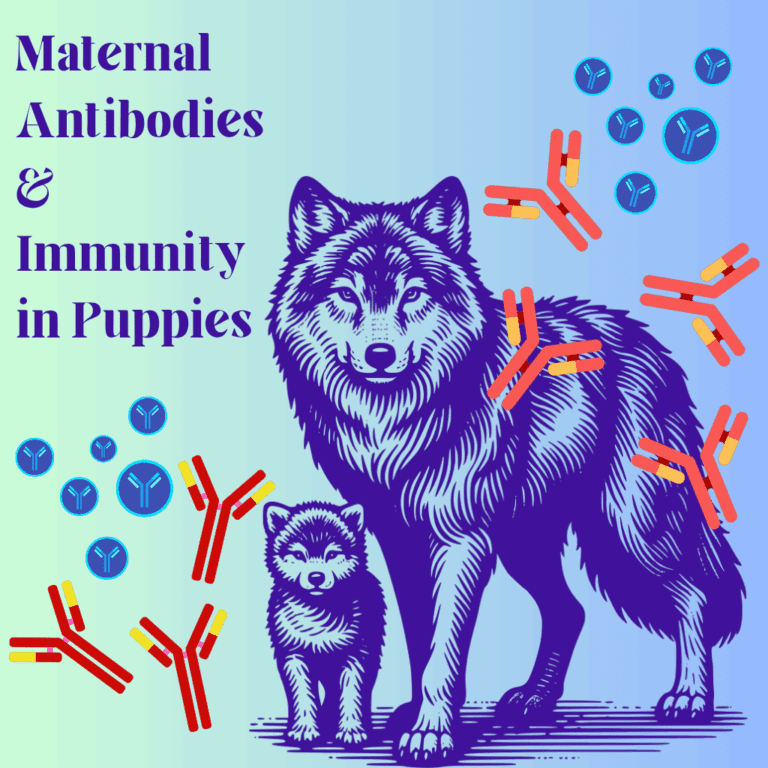What Are Maternal Antibodies?
From the moment a puppy is born, nature provides powerful protection. Maternal antibodies—passed through the mother’s colostrum (first milk)—flow into the puppy’s bloodstream, offering early immune defense against diseases like:
- Distemper
- Parvovirus
- Adenovirus
These maternal antibodies act like a living vaccine during the puppy’s most vulnerable first weeks of life.
It’s one of nature’s most extraordinary systems—designed to bridge the gap between birth and the time when a puppy’s own immune system becomes strong enough to protect them.

How Maternal Antibodies Protect Puppies
Maternal antibodies circulate in the puppy’s blood, neutralizing invading viruses and teaching the young immune system what to watch out for.During the first weeks of life, these antibodies are often the only thing standing between a puppy and serious illness.
But this protection comes with an important catch: Maternal antibodies can also block the effectiveness of vaccines.
The Problem: Maternal Antibodies Block Early Vaccines
When puppies are vaccinated too early—before maternal antibodies have faded—the antibodies often destroy the vaccine virus before the puppy’s own immune system has a chance to recognize and learn from it.
This means:
- The puppy doesn’t gain protection.
- The owner falsely believes the puppy is vaccinated and safe.
- Multiple, unnecessary vaccine doses may be pushed in an attempt to “catch up.”
Early vaccination isn’t just unnecessary—it can create a dangerous illusion of protection.
The Vaccination Gap Window
Maternal antibodies don’t vanish all at once. They fade gradually, usually between 14 to 16 weeks of age.
This creates a “gap window”:
Before 14–16 weeks: Maternal antibodies block vaccine effectiveness.
After 16 weeks: Vaccines are finally capable of properly educating the puppy’s immune system.
Delaying vaccines until 16 weeks gives puppies the highest chance of true, lasting immunity with just one properly timed vaccination.
How Homeopathic Nosodes Bridge the Gap
To safely support our puppies during this critical window, we use homeopathic nosodes.
Nosodes are prepared from disease material but contain no active virus.
They educate the immune system energetically, without interfering with maternal antibodies.
They offer gentle, natural protection from 8 to 16 weeks.
While nosodes are not a replacement for the lifetime protection a vaccine can create after 16 weeks, they bridge the critical gap safely and holistically.

Smarter Timing = Safer, More Effective Immunity
| Age | Action |
| Birth to 8 weeks | Maternal Antibody Protection |
| 8-16 weeks | Homeopathic nosodes |
| 16-18 weeks | Single core vaccine (distemper, parvovirus) |
| After 1 year | Titer test to confirm immunity |
When we honor the body’s timeline, we don’t just create healthier dogs—we create stronger, more resilient ones.
Why Early, Repeated Vaccines Can Backfire
Vaccinating a puppy repeatedly during the maternal antibody window:
- Stresses the immune system without creating true immunity
- Increases the risk of vaccine reactions
- Can trigger immune dysregulation (allergies, autoimmunity, neurological issues)
- Doesn’t guarantee protection
When vaccines are pushed too early, or too often, we don’t protect puppies—we gamble with their health.
Final Thoughts: Trust Nature’s Timeline
At the NAIDPP, we believe in working with nature, not against it.
Maternal antibodies exist for a reason.The immune system is wise beyond our interference.
Our job isn’t to override it. Our job is to support it—gently, respectfully, and intelligently.
Trust the process. Trust the pup. Trust the immune system.
🌐 Want To Learn More?
Dr. Ronald Schultz Research on Puppy Vaccination Timing
WSAVA Puppy Vaccination Recommendations
Hemopet Information on Maternal Immunity and Vaccine Nomigraphs

